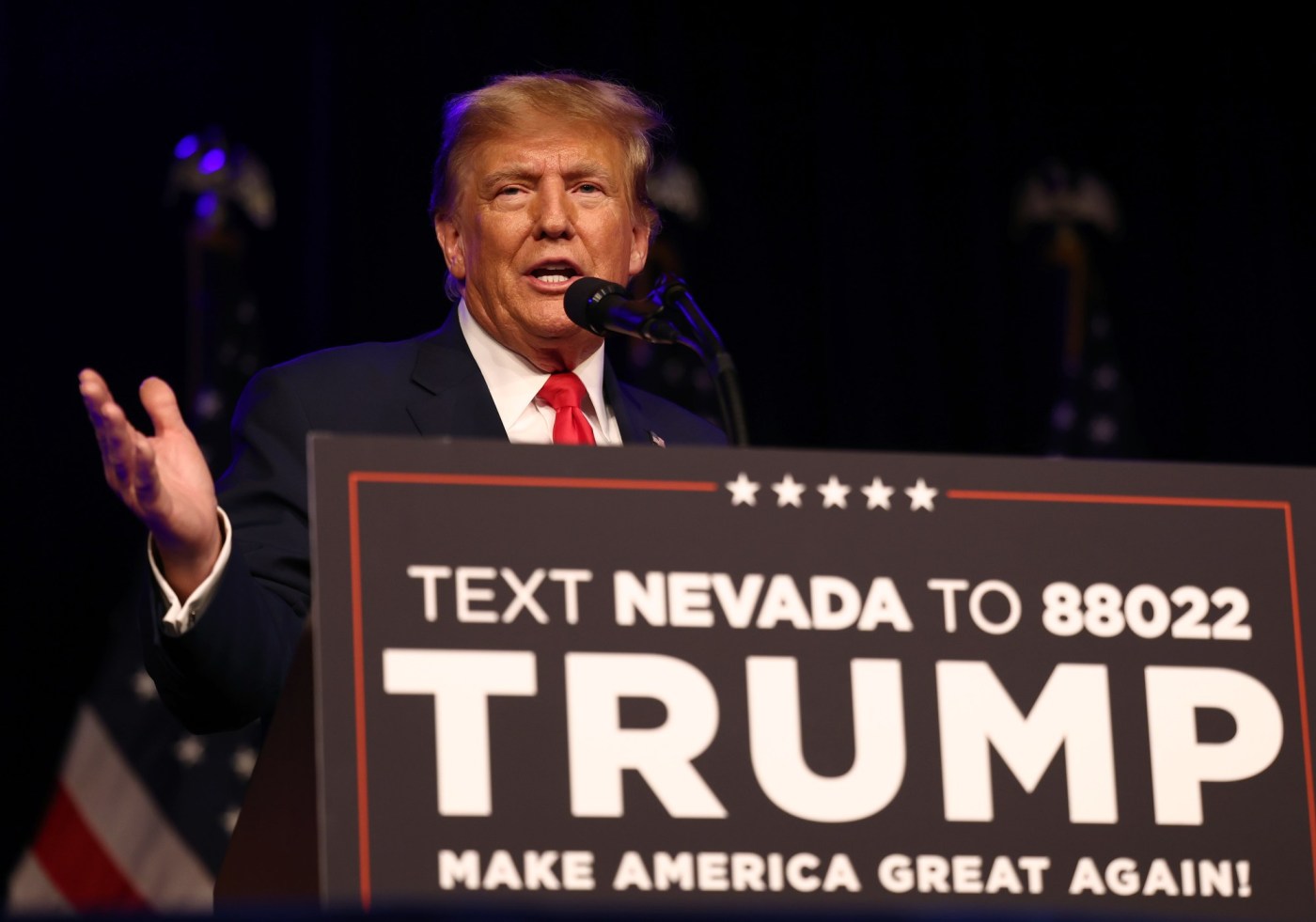Voters, including Republican supporters of former President Donald Trump, don’t like the practice of candidates applying nicknames to their political opponents.
More than three-quarters of voters surveyed in a nationwide Florida Atlantic University poll released Wednesday said it’s unacceptable to call competing candidates nicknames.
And two-thirds said it’s unacceptable to attack competing candidates by disparaging their personal characteristics.
The questions were written to be neutral, and so didn’t mention Trump by name. But there’s no mistaking who has employed the practice of assigning unflattering — or nasty — nicknames to political foes.
In or out of office, Trump is the nation’s name-caller-in-chief.
“The most interesting thing to me is that despite the fact that people say they don’t like it, it doesn’t seem to be determinative for who they’re voting for,” said Kevin Wagner, an FAU political scientist.
In other words, many say they don’t like the nicknames and personal attacks — but also support Trump.
The poll found Trump leading President Joe Biden 41% to 37%.
What looks like a disconnect between what people say they want and how they actually vote isn’t unique, Wagner said. “(It) is sort of consistent with the pattern we often find in negative campaigning. People say they don’t like it, but tend to be influenced and often persuaded by it.”
Nicknames
During the campaign for the Republican presidential nomination, Trump bestowed negative nicknames on his two principal competitors.
“DeSanctimonious” was Trump’s label for Florida Gov. Ron DeSantis, starting in 2022, when it became obvious that DeSantis planned to run for the 2024 Republican nomination.
Last month, after finishing a distant second place to Trump in the Iowa caucuses, DeSantis dropped out and endorsed Trump.
In return, the former president said the name DeSanctimonious was “officially retired.”
“Birdbrain” is Trump’s name for former Gov. Nikki Haley of South Carolina — even though when he was president he appointed her as U.S. ambassador to the United Nations.
She is currently Trump’s last remaining rival for the party nomination.
Disapproval
Voters say they don’t like the practice of calling competing candidates by nicknames.
58% of voters strongly disagree that it is “acceptable to call competing candidates nicknames”; another 19% somewhat agree that it is acceptable.
Only 6% strongly agree it’s acceptable and 12% said it’s somewhat acceptable.
More women strongly disapproved (64%) than men (51%).
Younger voters were much less bothered than older voters: among 18- to 34-year-olds, 46% strongly disagreed that it is acceptable to use the nicknames, compared to 35-49, 54%; 50-64, 67%; and 65+, 72%.
People who said in the survey they planned to vote for Trump were far less likely than Biden voters to find it unacceptable to call competing candidates by nicknames.
Among Trump voters, 74% said they disagree that nicknames are acceptable (48% strongly; 26% somewhat).
Among Biden voters, 85% said they disagree that nicknames are acceptable (69% strongly; 15% somewhat).
Republican presidential candidate, Florida Gov. Ron DeSantis speaks to supporters during a campaign rally at the Courtyard by Marriott Nashua on January 19, 2024 in Nashua, New Hampshire. DeSantis was dubbed “DeSanctimonious” by former President Donald Trump. (Photo by Brandon Bell/Getty Images)
Personal characteristics
Carly Fiorina, the former CEO of Hewlett-Packard and unsuccessful candidate for the 2016 presidential nomination, was subjected to a different kind of critique.
A Rolling Stone reporter traveling with Trump described what happened when Fiorina’s face appeared on a TV screen. “Look at that face!” Trump said. “Would anyone vote for that? Can you imagine that, the face of our next president?!”
He added, “I mean, she’s a woman, and I’m not s’posed to say bad things, but really, folks, come on. Are we serious?”
After his comments were published, Trump didn’t dispute the quote, but told Fox News that the comment was “jocular” in manner. “Probably I did say something like that about Carly,” Trump said. “I’m talking about persona. I’m not talking about look.”
Surveyed voters said they don’t like candidates talking about personal characteristics.
Two-thirds of voters disagreed that it is “acceptable to attack the competing candidates by disparaging their personal characteristics.”
A quarter said it is acceptable.
Women were much less comfortable with men making disparaging attacks based on personal characteristics.
Is it acceptable?
All voters: 44% strongly disagree, 23% somewhat disagree that it’s acceptable.
Women: 48% strongly disagree, 24% somewhat disagree.
Men: 39% strongly disagree, 22% somewhat disagree.
Trump voters: 34% strongly disagree, 28% somewhat disagree.
Biden voters: 54% strongly disagree; 19% somewhat disagree.
An overwhelming majority (61%) said they strongly disagree that it’s acceptable to attack competing candidates by disparaging their family members. Another 18% somewhat disagree.
Just 15% said they somewhat or strongly agree that attacks on family members are acceptable.
Republican presidential hopeful and former UN Ambassador Nikki Haley speaks during a campaign event at Forest Fire BBQ in Hilton Head, South Carolina, on February 1, 2024. Competitor and former President Donald Trump has given her the nickname “birdbrain.” (Photo by ALLISON JOYCE/AFP via Getty Images)
Familiar pattern
Two prominent Floridians were singed by Trump nicknames during the race for the 2016 Republican nomination, when he had many names for his foes, including fellow Republicans.
“Little Marco” Rubio was in reference to the U.S. senator from Florida.
Trump offered a pronunciation and spelling lesson at a rally west of Boca Raton. The label should be l-i-d-d-l-e, he said at the time. He also mocked Rubio as a choke artist.
And he decried “low-energy Jeb Bush,” when referring to the former Florida governor.
They weren’t alone. U.S. Sen. Ted Cruz of Texas, for example, was “lyin’ Ted.”
Trump’s 2016 Democratic opponent in the general election was “Crooked Hillary” Clinton. In 2020 he said he was running against “Sleepy Joe” Biden.
Trump switched things up last year, labeling the president “Crooked Joe.”
The survey
The survey was done by Mainstreet Research for Florida Atlantic University’s PolCom Lab, which is a collaboration of the School of Communication and Multimedia Studies and Department of Political Science.
The FAU survey of 1,180 adults was conducted on Friday and Saturday by Mainstreet Research. An important caveat: The survey was conducted via text message and an online panel. That made it impossible to assign a margin of error, the survey report said, adding it was “intended to represent the voting population” of the U.S.
Anthony Man can be reached at [email protected] and can be found @browardpolitics on Facebook, Threads.net and Post.news.













+ There are no comments
Add yours